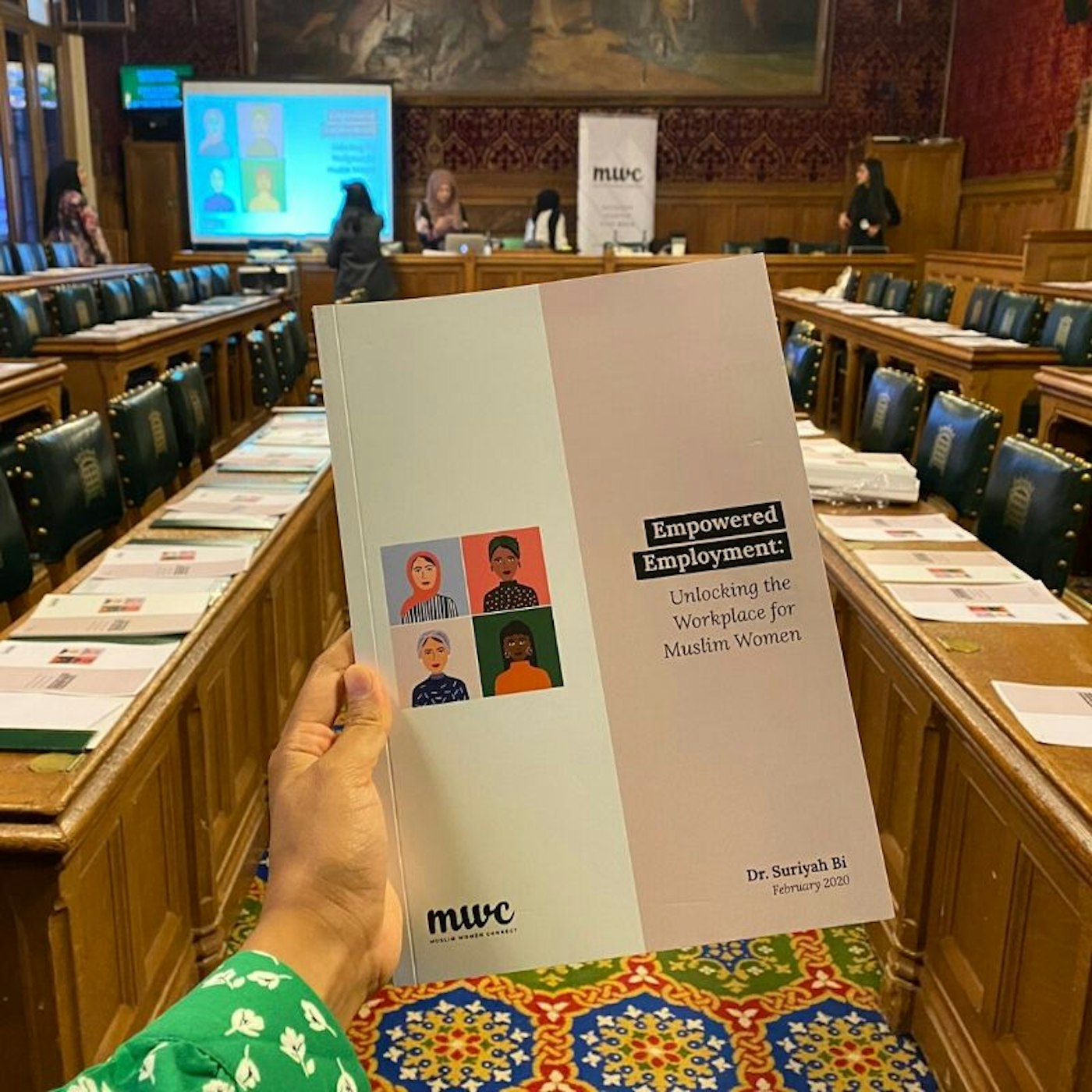47% of Muslim Women Have Encountered Islamophobia and Discrimination in the Workplace, New Report Finds
by Amaliah Team in Careers on 2nd March, 2020

Muslim Women Connect (MWC), who run a mentoring programme to help Muslim women develop their careers has launched a 60-page report titled ‘Empowered Employment: Unlocking the workplace for Muslim women’. The report explored the experiences of Muslim Women in relation to their work and career development. The report states that “this is the largest and most comprehensive study of its kind to be conducted on Muslim women’s experiences of work and career development anywhere in the world.”
The report was authored by Dr Suriyah Bi, who over the past eighteen months conducted 50 interviews and collected 425 survey responses, alongside her final year doctorate at Yale’s Department of Anthropology.
On the 26th of February 2020, the report was launched in parliament, which saw the shadow foreign minister Afzal Khan in attendance. The full report is available to download on the MWC site with mentions of other supporting institutions such as Yale and SOAS.
Chairing the event is @Afzal4Gorton MP, Shadow Foriegn Minister.
We are delighted to support the parliamentary launch of @DrSuriyah‘s report “Empowered Employment: Unlocking the Workplace for Muslim Women.” pic.twitter.com/2deVUCh7qn
— Muslim Women Connect (@muslimwomenc) February 26, 2020
The report is significant due to the size and area which also contribute to dispelling broad generalisations and stereotypes that are made about Muslim women. The report has also celebrated the many strengths of Muslim women with the statistic that 84.2% of British Muslim women were actively engaged in the labour market and contributing to the economy.
Today I launched my report on Muslim women’s experiences of work & career development @UKParliament ; the largest study in the world! Thank you to @Afzal4Gorton Baroness Helena Kennedy @SaminaEKhan @UniofOxford @RukasanaBhaijee @muslimwomenc @YasminQureshiMP @BaronessUddin @SOAS pic.twitter.com/TUdX0B2yVH
— Dr Suriyah Bi (@DrSuriyah) February 26, 2020
The report will also be used to provide recommendations for employers, institutions, organisations and policy makers in the UK, the recommendations could help to prevent or reduce some other key findings such as a “loss of talent between the ages of 14-22”.
The participants were “British Pakistanis at 37.4%, followed by British Bangladeshis at 15.8%, and British Indians at 12%, which is synonymous with the settlement size of the respective communities. In descending order of participants ethnicities represented included, Black British African (9.9%).”
The key findings that stood out were:
- 84.2% of British Muslim women were actively engaged in the labour market and contributing to the economy, suggesting that Muslim women are highly competent and skilled.
- 78% experienced more than one challenge; a significant finding that illustrates the sheer difficulty Muslim women experience in pursuing career and work development.
- A major challenge to work and career development was a lack of confidence which 54.3% of participants selected. The second major challenge experienced was a lack of career advice with 47. 8% of participants having made this selection. The third major factor was the lack of opportunity, with 43.5% of participants making this selection.
- 33.9% of participants stated that family and partner expectations were barriers to their career development.
In response some of the key recommendations for employers, education providers and organisations for Muslim women:
- For employers and workplaces: A major obstacle highlighted in the workplace was the alcohol culture, which dominated networking events in particular.
- For education providers: The research demonstrates a loss of talent between the ages of 14-22. There is an urgent need for tailored mentoring and development programs between these ages.
- For Muslim women Support organisations such as Muslim Women Connect: Offer streamlined mentoring services that include paid internships, shadowing in the workplace and networking sessions that focus on building networking skills, would make a significant positive impact.
The report also highlighted that near enough half of those who participated experienced Islamophobia and discrimination in the workplace. Rukasana Bhaijee, senior manager of diversity and inclusion at Ernst & Young UK&I, commentedat the event:
“we need to create a culture of belonging,”
This also confirms that workplaces have significant challenges in creating an inclusive environment and that the report can contribute to understading what is needed to bridge the gap.
Baroness Helena Kennedy QC who was also at the launch also commented”
“No woman should face discrimination because of her gender, religion, race or any other factor. Yet as this Report shows, Muslim women do. The ordinary hurdles faced by women intersect with religious prejudice and with race to undermine the life chances of women from Islamic traditions. This is an important report by a fine scholar and it should inform everyone who wants to create an inclusive and just society which respects human rights. “
The report suggest the following:
“Employers must issue clear guidelines as to the behaviours that constitute as Islamophobic, anti- Muslim, and/or racist and to ensure that these guidelines are read by each employee. Employers must also categorise and treat such abuse as forms of ‘gross misconduct’, and take the relevant steps to address such incidents.”
“In parallel to this, employers must offer support services for employees that have been affected by Islamophobic abuse, and instill a positive and assisted culture of reporting such abuse.”
There was support across social media for the report:
Answers at #EmpoweredEmployment include:
🔹 Prayer rooms, raise awareness about Ramadan and encourage colleagues to try fasting
🔹 Muslim Women are here, and are economically active
🔹 Download the report from the @muslimwomenc website for more recommendations and solutions.— James Arthur Cattell (@jaCattell) February 26, 2020
https://twitter.com/LucyCaldicott/status/1233366576595898368
https://twitter.com/muslimwomenc/status/1232730629042819072
https://twitter.com/Afzal4Gorton/status/1233105440864686080
https://twitter.com/muslimwomenc/status/1232733987258478593
https://twitter.com/muslimwomenc/status/1232733543442386945
Amaliah Team
This article was written by a member of the Amaliah team or a collective team effort. You can follow us on @amaliah_tweets for the latest or head over to our Instagram @amaliah_com. If you're reading this and are thinking about contributing an article then send us an email with a brief or a full article to contribute@amaliah.com